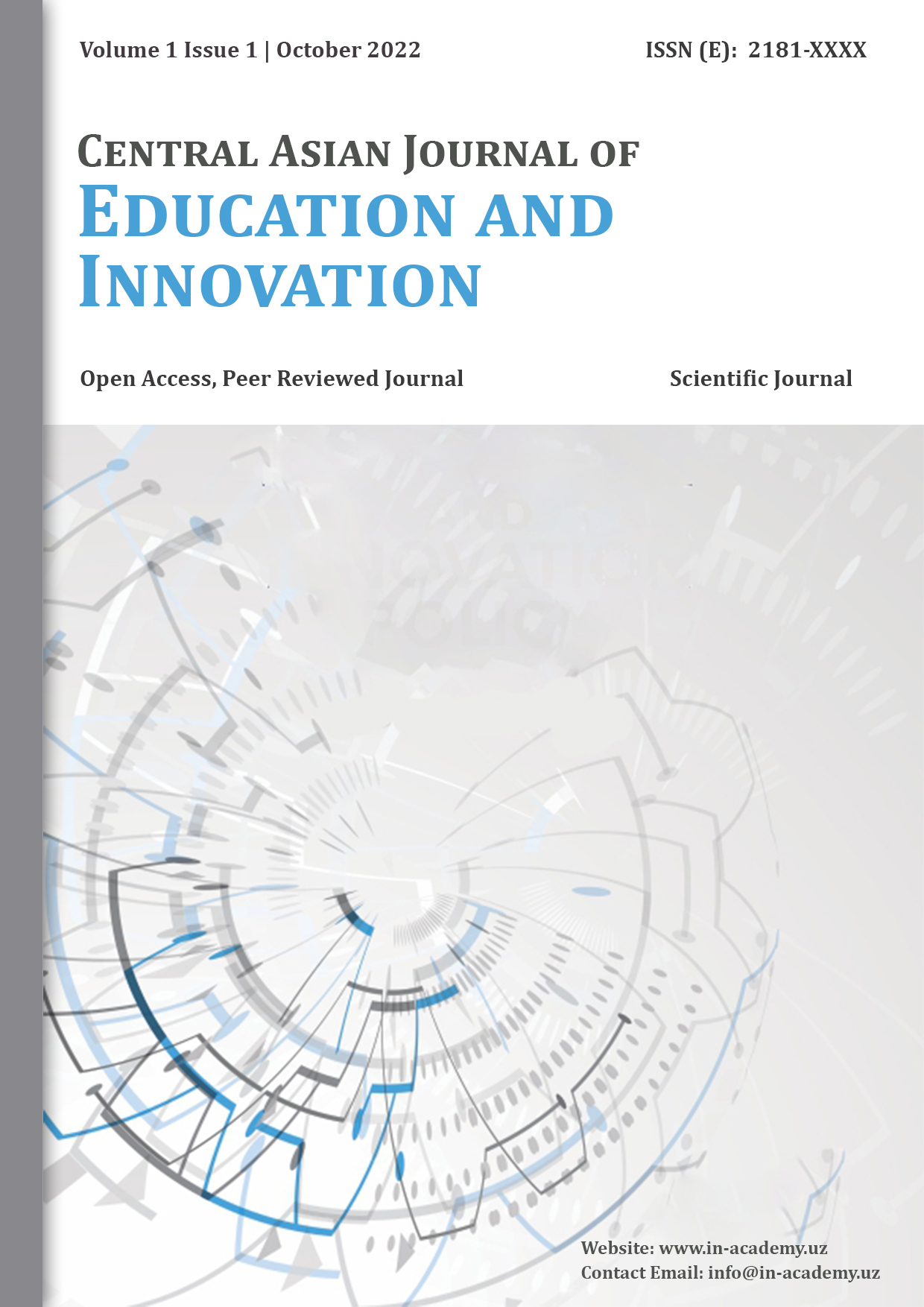THE ESSENCE AND UNIQUENESS OF THE GAME IN THE CHILD'S ACTIVITY
##plugins.themes.bootstrap3.article.main##
Abstrak:
Play is an essential and distinctive aspect of childhood that profoundly influences children's development across multiple domains. This scientific article explores the essence and uniqueness of play in children's activities, drawing upon a comprehensive review of existing literature. Play is characterized by its voluntary and intrinsically motivated nature, providing children with a self-directed and imaginative space for exploration, learning, and social interaction. The cognitive benefits of play include enhanced problem-solving skills, creativity, and a positive attitude towards learning. Emotionally, play supports emotional regulation, empathy development, and the expression of complex emotions. Socially, play facilitates the development of social skills, cooperation, and cultural understanding.
##plugins.themes.bootstrap3.article.details##
##submission.howToCite##:
##submission.citations##:
Bergen, D. (2002). Play as a medium for learning and development: A handbook of theory and practice. Routledge.
Ginsburg, K. R. (2007). The importance of play in promoting healthy child development and maintaining strong parent-child bonds. Pediatrics, 119(1), 182-191.
Hirsh-Pasek, K., & Golinkoff, R. M. (2003). Einstein never used flash cards: How our children really learn—and why they need to play more and memorize less. Rodale Books.
Pellegrini, A. D., & Smith, P. K. (2005). The nature of play: Great apes and humans. Guilford Press.
Smith, P. K., & Pellegrini, A. D. (2013). Play in animals and humans. American Psychologist, 68(2), 122-135.
Whitebread, D., Basilio, M., Kuvalja, M., & Verma, M. (2012). The importance of play: A report on the value of children's play with a series of policy recommendations. International Journal of Play, 1(3), 219-233.
Singer, D. G., Golinkoff, R. M., & Hirsh-Pasek, K. (Eds.). (2006). Play = learning: How play motivates and enhances children's cognitive and social-emotional growth. Oxford University Press.
Lillard, A. S., Lerner, M. D., Hopkins, E. J., Dore, R. A., Smith, E. D., & Palmquist, C. M. (2013). The impact of pretend play on children's development: A review of the evidence. Psychological Bulletin, 139(1), 1-34.
Bundy, A. C., Naughton, G., Tranter, P., Wyver, S., Baur, L., Schiller, W., ... & Bauman, A. (2009). The Sydney playground project: Popping the bubblewrap—unleashing the power of play: A cluster randomized controlled trial of a primary school playground-based intervention aiming to increase children's physical activity and social skills. BMC Public Health, 9(1), 1-13.
Ergasheva D. SHAXSIY PЕDAGOGIK TAJRIBANING TAVSIFI HAMDA O’QITUVCHI USLUBLARI //Interpretation and researches. – 2023. – Т. 1. – №. 7.
Lillard, A. S. (2018). The case for make-believe: Saving play in a commercialized world. Oxford University Press.

